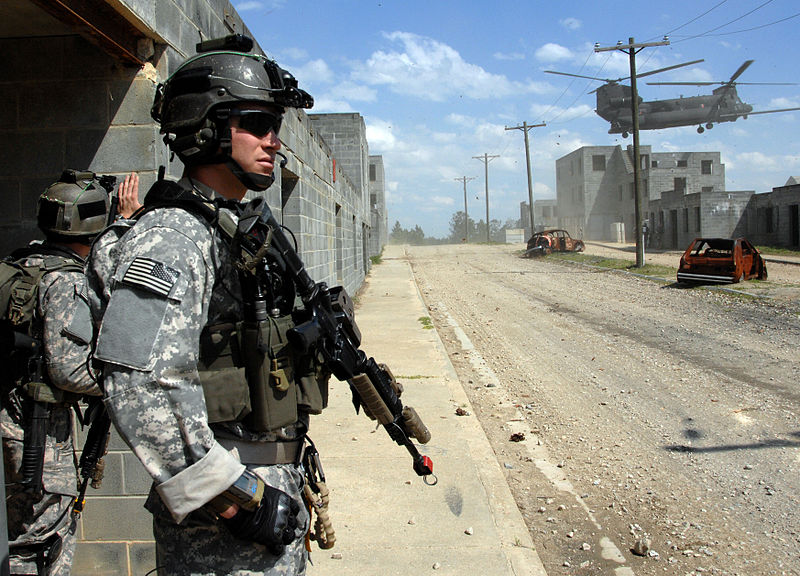Will the US Send Troops to Fight ISIS?
Professor Saeed Khan discusses the possibility that US troops will eventually fight ISIS

Stephen Henderson talks with Wayne State history professor and lecturer Saeed Khan about ISIS and US foreign policy. They discuss how it relates to historical conflict, what ISIS’s strategies are, and if the US will eventually have to put boots on the ground to combat ISIS.
- Vietnam parallels: Stephen asks if ongoing US involvement in the Middle East is reminiscent of the Vietnam war. Khan says that in Vietnam the US inherited a colonial legacy from France and acted essentially alone in a region where we were not sure who our allies and enemies were. He implies that there are parallels between this and ISIS, but does not make a direct connection.
- Dis-unified allies: He says that in the Middle East currently in regards to ISIS, the US has to act in conjunction with allies that have a variety of different strategies and priorities. He says that the US will be unable to convince or threaten other countries to unify with its interests.
- US Military involvement: Stephen asks if the US will become more directly involved in the military struggle against ISIS by putting “boots on the ground”. Khan says that this is uncertain, but the US military is already involved through air strikes, arms sales, and 450 advisors in the area. He says that the US is considering a “lily pad policy”, involving several small, protected, easy to control bases in areas like eastern Anbar province in Iraq.
- US legacy in Iraq: Khan says that instability in the Middle East, and part of why ISIS has been able to attract support, is because the US and Western forces in the Middle East have ignored political, social, and cultural conflicts and internal dynamics in the region in the past. This has created disorder and heightened conflict within and between groups. He uses how the US influenced Iraq after Saddam Hussein as an example of how the US has driven some groups, such as Sunnis, towards more support for ISIS.
- “ISIS the franchise”: Khan says that some of US fear towards ISIS is driven by fear of terrorism in the US, such as the Boston Marathon bombing. He says that this type of terrorism is not directly connected to ISIS in the Middle East, and that there is a distinction between “ISIS the franchise” and ISIS itself.
- Is there a solution? Khan says that ISIS and conflict in Iraq will not have a military or political solution, but will require a cultural paradigm shift towards a unified national identity and against ISIS as a common enemy. He says that this could take a decade or a generation. Stephen says that this will be a disappointment for many Americans, who thought the US would be extracting its troops from the Middle East within Obama’s presidency.
Click the audio link above to listen to the full conversation.
